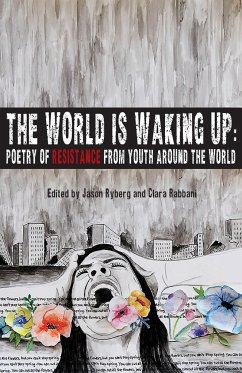From the beginning of time, poems have been smuggled out of prisons, exchanged on battlefields, passed from hand to hand, carved on walls, written in the margins, distributed on street corners, and carried in coat-pockets overseas. Every culture and generation produce poetry in response to the injustices of its time. Deeply rooted in resilience, the enduring nature of poetry and its ability to capture the struggles of the past can serve as a sustaining force in a sea of turmoil. If creativity is a form of protest, then the poet is the protester. Pablo Neruda saw the power of poets and the remarkable potential of their words: Earth, people, and poetry are one and the same entity tied together by mysterious subterranean passages. When the earth blooms, the people breath freedom, the poets sing and show the way.¹ When poems are gathered together, they form a mighty body that is impossible to constrain, like the sea. Every time a poem touches someone's conscience, like gathering drops, it invites the possibility for action, forming a tempest. Thus, the transformative potential of resistance poetry can serve as a potent antidote against the injustices of the world.
Hinweis: Dieser Artikel kann nur an eine deutsche Lieferadresse ausgeliefert werden.
Hinweis: Dieser Artikel kann nur an eine deutsche Lieferadresse ausgeliefert werden.








